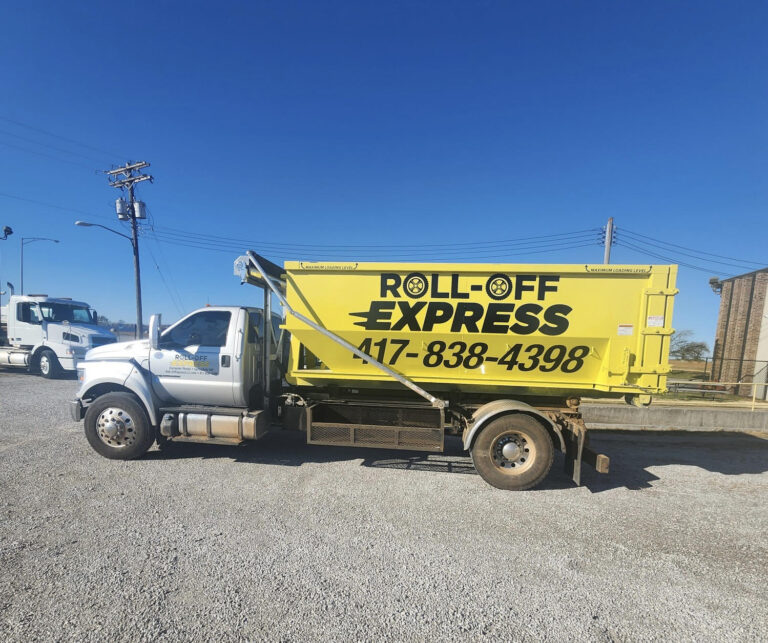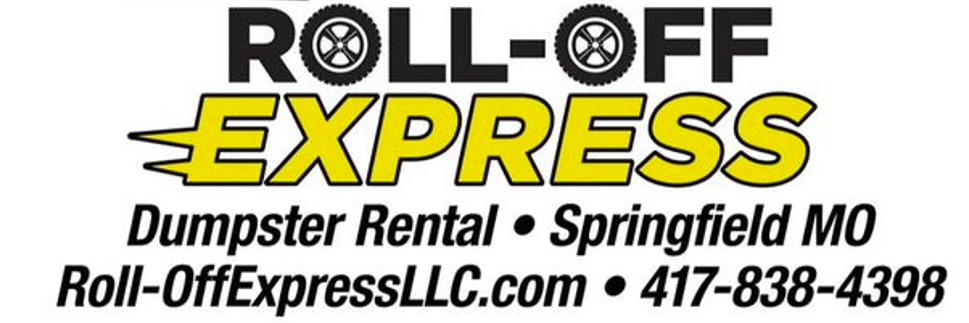

Ever felt overwhelmed by the looming mountain of debris from a renovation or construction project, dreading the complications of waste removal? You’re certainly not alone. The fear of mishandling such a massive task can be a lot, whether it’s for a small home renovation, a significant cleanup effort, or a large-scale commercial construction job. Waste management poses a real challenge, but panic is unnecessary. In this essential 2023 guide, we take the fear out of dumpster rentals.
We’re here to guide you through every critical step, from accurately estimating your waste in cubic yards to effectively scheduling the final dumpster delivery, infused with vital tips and tricks. This guide also covers how to deal with different types of waste, including household trash and construction waste, ensuring that you make the best decision for your specific needs. Bid farewell to the anxiety of waste management and welcome a streamlined, stress-free disposal process with our in-depth exploration of ‘How Do Dumpster Rentals Work?’ Dive into this guide and emerge as a confident, informed individual ready to tackle waste management head-on!
To accurately gauge the volume of your waste, it’s essential to measure the debris in cubic yards first. This measurement is a key step whether you’re tackling a household cleanout, managing construction debris, or handling yard waste.
Remember, correctly estimating the volume of debris not only helps in selecting the right size dumpster but is also crucial in managing your budget as it helps avoid additional fees related to overfilling or underutilization.
Check out this super handy dumpster weight estimate calculator to help you figure out what dumpster size is right for you!
Selecting the right dumpster size begins with knowing your waste volume in cubic yards. With this estimate, matching your needs to the appropriate dumpster size becomes straightforward, as dumpster capacities are also measured in cubic yards.
When choosing a dumpster, consider the type of debris you’re disposing of. For instance, heavier materials from construction sites may require a sturdier roll-off dumpster, while residential cleanouts can typically be handled with smaller dumpsters.
After estimating your waste and selecting a suitable dumpster, obtaining a permit might be your next step. Permits are often required in urban or public areas. A smart move is to check with local authorities at city hall about any specific dumpster placement regulations.
Additionally, consulting with your dumpster rental provider about permit needs is advisable for smooth project execution. Remember, ensuring compliance with state regulations is not just a good idea, but it’s also essential for legal waste disposal.
Obtaining quotes involves reaching out to various dumpster rental services to compare their pricing. It’s important to provide them with details like the waste type, its volume, and the intended rental duration. Be aware of potential extra costs, such as trip fees or special waste disposal charges.
Don’t forget to inquire about the weight limit and any additional fees that might apply for exceeding it. Some rental services might request photos or an in-person assessment of your waste to give a more accurate quote. Providing precise and detailed information is key to receiving a fair and transparent pricing estimate.
Absolutely, reviewing customer feedback is crucial. Assessing reviews of dumpster rental services gives you insights into their dependability, customer support, and compliance with waste management laws.
This step is instrumental in identifying a trustworthy dumpster rental company. Reading reviews can also provide you with information about the quality of the rental services, including the condition of the dumpsters, punctuality of delivery and pickup, and overall customer satisfaction.
Discovering the dumpster rental period is as simple as visiting the rental provider’s website or giving them a call. Rental companies offer a range of durations, so understanding this helps you effectively schedule and manage your project. Remember, extending the rental beyond the agreed term often incurs additional charges.
Note that some services might offer special rates for quick turnarounds, such as completing your project within 24 hours. It’s also important to consider the rental period in relation to the volume of debris you have, ensuring that the dumpster is not sitting idly and incurring additional costs.
Paying attention to weight limits is essential when renting a dumpster. Surpassing the prescribed limit can lead to significant extra costs. This consideration is particularly vital for disposing of heavy construction debris or bulky items.
Be mindful of unexpectedly heavy materials such as wet soil, dirty concrete, or layered roofing materials, where improper past installations can add extra weight. Understanding the weight limit is not just about avoiding fees; it’s also about safety and ensuring that your chosen dumpster can effectively handle the type of debris you’re disposing of.
Avoiding the disposal of hazardous waste in standard dumpsters is a key environmental and regulatory concern. Hazardous substances like chemicals or flammable items require specialized disposal methods.
Adhering to proper waste disposal methods is crucial for safeguarding the environment and following local regulations. Be sure to ask your dumpster rental company about the best way to dispose of hazardous materials, as they may offer specific junk removal services or direct you to appropriate waste disposal facilities.
Renting a dumpster involves a few important steps: selecting the appropriate dumpster size based on the volume of your waste, finding a reliable local dumpster rental service, understanding the rental costs, and ensuring that your waste disposal adheres to all relevant guidelines and regulations.
It’s also important to consider the type of project and the specific needs it entails, such as the disposal of construction materials, household debris, or yard waste. By choosing a reputable dumpster rental company, you can ensure efficient waste management and adherence to waste disposal laws.
Pick a Dumpster Size: The first step is to select the right dumpster size for your project. The size you need depends on the project type and the amount of waste you expect to generate:
Small Remodels & Cleanouts: A 10-yard dumpster is often ideal for these projects, perfect for accommodating a moderate volume of household trash or smaller bulky items.
Mid-Sized Construction and Repair: Choose a 20-yard dumpster for these kinds of projects, as it can handle a larger amount of construction debris and heavier materials.
Large-Scale Remodels and Cleanouts: For extensive projects or major cleanouts, consider larger dumpsters like 30-yard or 40-yard options. These are well-suited for significant amounts of waste, including large items and heavier construction debris.
For a complete run down on dumpster sizes and what job they’re perfect for, check out this awesome blog, ‘Rent the Right Dumpster Size for Your Trash’.
Get Quotes: It’s advisable to request quotes from several dumpster rental companies to compare rental costs and services. When asking for quotes, consider both variable pricing and all-inclusive pricing options. Variable pricing can change based on the debris weight and rental duration, while all-inclusive pricing typically covers the rental period, delivery, pickup, and a set weight limit, offering a more predictable cost structure.
Review Details: Thoroughly review the rental agreement. It’s crucial to understand the weight limit, rental period, and any potential additional fees associated with specific types of waste or extended rental periods. Being aware of these details helps in avoiding unexpected costs and ensures a smooth rental experience.
Place an Order: Once you’ve selected a dumpster rental service, you can place your order online or over the phone. When placing the order, specify the required delivery day, choose the correct dumpster size based on your project needs, and provide any specific instructions for the dumpster’s placement and delivery. Ensure that the dumpster delivery day aligns with your project schedule to maximize efficiency.
Prepare for Delivery: Proper preparation for the delivery of your dumpster is key. Ensure that the delivery area is clear of any obstructions and has ample space for the dumpster. If you have a swinging door on the dumpster, ensure there’s enough room for it to open fully, which can make loading large items easier. Mark the spot where you want the dumpster placed if you won’t be present during delivery. This is particularly important for larger dumpster sizes. Additionally, remember to avoid disposing of hazardous materials in the dumpster, as they require specialized disposal methods.
Schedule Pickup: Once your project is complete or the dumpster is full, schedule a pickup with the rental company. Adhering to the agreed-upon rental terms is essential to avoid additional charges. Scheduling the pickup within the rental period ensures that you won’t incur extra fees for keeping the dumpster longer than originally planned.
Accurate Waste Estimation: Measuring your waste in cubic yards is critical. This ensures you choose a dumpster that’s the right size for your project, helping you avoid the pitfalls of overfilling and incurring extra fees.
Selecting the Right Dumpster Size: It’s important to choose a dumpster that fits your project’s needs. Sizes range from smaller 10-yard dumpsters for residential projects to larger roll-off dumpsters for more extensive construction sites.
Permit Requirements: Depending on your project’s location, particularly in urban areas or on public property, you may need a permit for the dumpster. Always check with local authorities to understand the specific regulations.
Obtaining Various Quotes: Compare prices and services from different dumpster rental companies. Be vigilant about potential additional fees like trip fees or special disposal charges.
Reading Reviews for Reliability: Customer reviews can provide valuable insights into the reliability and customer service of dumpster rental companies, as well as their adherence to waste management standards.
Understanding the Rental Period: Knowing the length of the dumpster rental period and the costs associated with extending it is crucial for efficient project planning and budgeting.
Weight Limit Considerations: Be mindful of the weight limit of your chosen dumpster, as exceeding it can result in hefty additional fees, especially for heavy materials like construction debris.
Disposing Hazardous Waste Properly: Hazardous materials, such as chemicals or flammable items, require special disposal methods and should not be placed in standard dumpsters.
Reviewing the Rental Agreement: Pay close attention to the rental agreement, particularly the sections detailing weight limits, rental duration, and any additional fees for certain types of waste.
Preparing for Dumpster Delivery and Pickup: Ensure the area for dumpster delivery is clear, mark the placement spot if you cannot be present, and refrain from disposing of prohibited items. Align your pickup schedule with the rental terms to avoid additional costs.
Adhering to these guidelines will pave the way for a smooth and efficient dumpster rental experience, whether for small residential cleanouts or larger construction endeavors.
The rental price of a dumpster is influenced by several factors, including the size of the dumpster, the rental duration, location, and the type of waste being disposed of. Prices can also vary based on local disposal fees and the specific terms of the rental company.
While it’s not always necessary to be present for dumpster delivery, it can be beneficial. Being on-site allows you to ensure the dumpster is placed in the desired location and address any immediate questions or concerns with the delivery personnel.
Generally, electronics are not allowed in standard dumpsters due to their hazardous components. Most areas have specific recycling programs for electronics. It’s best to check with your dumpster rental service or local waste management regulations for proper disposal methods.
Exceeding the dumpster’s weight limit can result in additional fees. It’s crucial to understand the weight limit when renting a dumpster and to estimate your waste accordingly to avoid these extra charges.
Yes, there are certain items typically prohibited in dumpsters, including hazardous waste, flammable liquids, certain types of electronics, tires, and medical waste. It’s important to check with the rental company for a complete list of prohibited items to ensure compliance with local regulations.

Roll-Off Express | LETS TALK TRASH | Dumpster Rentals